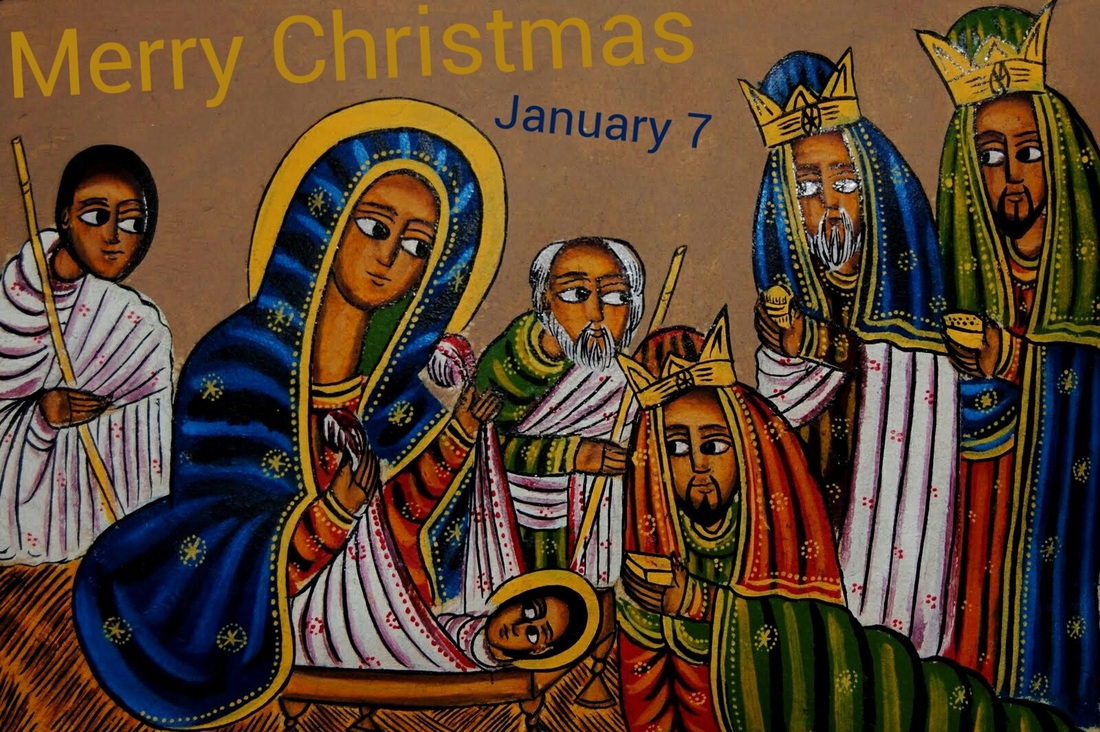|
At the start of 2016 I received the first best wishes, apart from my close relatives, from Ethiopia. Which is a bit odd as in Ethiopia the Melkam Addis Amet (happy new year) has been exchanged in September already, following the Julian calendar. At the other hand their Christmas is still coming. In many ways the timing of the Eastern Orthodox is a lot better than the Western one. Around the start of the Ethiopian new year new global goals were set, a set of new promises. Resolutions or, as we say in the Netherlands, good intentions. This tradition has eroded quite a bit, with only 17% of the Dutch expressing them explicitly, making me cautious doing the same here.
To be frank I probably did not make the best start into the new year by purchasing a successor to our 'family vehicle'. So there you go, reporting on climate negotiations and a potential new set of what may turn out false promises. So than, what do you do? I presume there are various options to deal with this 'sin' against humanity. Limit the use of the car? Contribute to one of the many CO2 initiatives that try to capitalize on the individual and collective sense of guilt? Start working for an organization that helps people fight climate change? I guess this type of questions that I have to deal with do not compare to the questions most of the climate victims need to deal with in the coming year. Shall we stay at our farm or move to an urban center in search for a better life. Or for young unemployed academics: Do I stay or shall I try my luck in Europe? I can also take it from a professional angle: Am I not engaged in building capacity of people through education and training to be better able to deal with the changing world around them? However, does it really empower them if at the same time those that receive training are lured into a world where this type of education invites for wasteful behavior with regard to natural resources, as 'modern' societies have demonstrated in the past century? Or will so called advanced economies also help us getting out of the mess with climate smart technology? Secondly, would I be a genuine advocate for change, if I keep traveling the world contributing to even more pollution? How do I bring global goals and organizational and personal behavior together? MOOC One of the clear trends that can be observed today is the obscuring of the public-private boundary. Where in the past some clear distinction existed between public and private responsibilities and duties, today achieving public goals requires private investment. Worth mentioning in this respect is the recent Massive Open Online Course (MOOC) on Finance for Development that the World Bank organized. A nice example of how training can be organized without having to board a plane, while still comparing notes on our final project cross-culturally. At the same time I was shocked to learn in what way billions are expected to be turned into trillions to finance development. Though the ambition is laudable, I still have doubts whether the proposed combined power of public and private financial resources will make the difference. Increased tax revenues from improved domestic resource mobilization together with tapping private foundations, pension funds and philanthropic institutions should do the job according to the World Bank, with a central role of course for multilateral financial institutions. Vows and accountability What I am missing in the public-private story of the World Bank is the human, actionable dimension as illustrated above. We do have choices, and every choice we make has both private and public repercussions. Hence, my vows at the start of this new year should be about my personal consumption and production patterns. For the sake of accountability over private good intentions it will be good to announce them to the ones near to you privately. They are in the best position to keep you accountable. As far as my public duties (paid with tax money) are concerned some public accountability may be required. I intend to compensate for every mile traveling faster than cycling speed. Secondly, I will minimise travel and maximise open online exchanges at both individual and intra-organizational level for which I will at least take three initiatives in the coming year that influences a 1000 persons' individual choices positively. Hope this blog makes for the first 100.
Caspar Waalewijn
6/1/2016 15:17:10
A good bringing together of the personal and communal point of view. THe global issues need a personal translation to make meaning. And a community is needed to strengthen personal commitments, though the personal motivation comes first, to prevent showing off to others. Comments are closed.
|
About meMy name is Reinier van Hoffen. U®Reading
Click here for a summary.
Also find the text of a lecture Dr. Achterhuis held at the 2012 Bilderberg conference. Archives
August 2022
|
AddressNachtegaallaan 26
Ede, the Netherlands |
Telephone+31 (0)6 1429 1569
|
|

 RSS Feed
RSS Feed
















